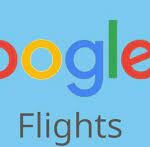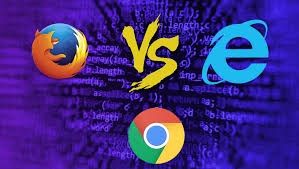The introduction of the internet has generated a wealth of useful information available to millions of people across the globe. With the increased online services popularity, many internet users have access to more information as opposed to previous times, similarly such information is growing exponentially. Persons seeking to benefit from this information essentially have two intentions. They intend to explore information, gaining familiarity with such information and identify information that interests them, or they intend to search for specific information and retrieve what is relevant. At the moment, there are two major ways to locate information namely, browsing and searching.
Browsing is viewing pages each at a time as well as sequentially navigating between them with the aid of hyperlinks. Searching on the other hand is entering a specific search query into a certain search engine to yield a ranked lists of hyperlinks to existing pages matching the query. This report therefore focuses on exploring the two paradigms with the aim of shading more light and making users easily understand them.
The two terms are often confusing. But importantly, browsing cannot be said to as the best way of finding specific information, since users are forced to meticulously guide themselves of content reachable through links. On the other hand searching may return inappropriate results loosing vital context within the pages that lead to the search result. Despite the fact that both browsing and searching have different disadvantages, they often persist on the basis of their complementary merits.
Ideally, searching is popular among many users due to its power to locate pages that have specific information quickly, every search is based on a user’s specific information need. Browsing on the other hand is helpful in situations where suitable search keywords are unavailable or nonexistent to the user due to different possible justifications.
There are basically two dimensions to searching the internet. First is keyword search where individuals enter a set of keywords which from their perspectives, best represents their search needs. The requests are then translated to search queries and looks up for information matching the search. There is also advanced keyword search which enables individuals to enter more than a single keyword using Boolean operators such as AND, OR and NOT. The second approach is the combined keyword search together with categorization, lately some search engines allow users to customize their searches by restricting their search to specific directories. Such as specifically looking for news, images or publications relating to a given search term.
During browsing, users may not be sure of what they are looking for until they first get a blueprint of the available options through a simple search. For instance, a user looking for mobile phones might not know the price of the choice between an android phone and a windows or iPhone. The user may begin with a slight notion of what they are looking for. Within the browsing process, the precise criteria may manifest itself. For example, a user might want to locate a reliable phone. Upon browsing, they get information on user reviews pertaining the reliability of various phones and are able to create a quantitative criterion for reliable. Furthermore, users may wish to at times change their initial browse criteria as they continue to obtain more information.
Secondly, specific criteria do not conform well to keyword search, hence browsing is much ideal. For example, users may wish to locate phones with at least 4000mAh. It is hard to search for such criteria by use of technology that already exists. Third, the precise expression used within web pages might be unknown, hence searching would not produce the right outcome. For instance, users looking for devices that are touchscreen, advanced operating system as well as personal computer features might not know that vendors employ the term “smartphone” within their descriptions of products.
Browsing is ideal in situations where a significant amount of information as well as context is obtained within the path of browsing and not just within one final page. For instance, consider that web pages about android phones may not likely include information about iPhones. Nevertheless, in case the front page describing the various smartphones has links to smartphones by platform. In such a scenario, it might not be conceivable to ascertain if a specific smartphone supports which platform by looking at the browsing links that lead to the smartphone description page.
Sophisticated information goals comprise of various criteria, usually with some criteria on every category. In the example used above, a user looking for a reliable phone. Search is quite appropriate in locating and android or iPhone, whereas browsing is ideal for locating smartphone on the basis that it is a relative and difficult criterion to represent with a specific keyword. Despite the fact that it is ideal, it is hard to enjoy the advantages of both browse and search concurrently. However, if a user begins with a search it is hard to locate any contextual information attached to the path that leads to the outcome pages. If a user starts by browsing, it is hard to carry out a search which harnesses the advantage of the insight obtained within the initial browsing session.
There are also two approaches to browsing, first hypertext browsing which support browsing through provision of links between topics and keywords entrenched within text which can be browsed at will by individuals. The second approach is directories which improves exploring efficiency especially when a huge information domain is involved through partitioning the information domain to unique subject sets which make more sense to users. Subject classification and categorization are common especially in libraries and information science. This approaches are hampered in their granularity as well as timeliness. The procedure for establishing categories and linking them to homepages is a manual process thus quite slow.
It is also evident that individuals find it hard to meet their browsing needs quickly. The cause of this is that browsing hints usually do not have sufficient information to carry out the necessary search to various individuals. There is so much that needs to be done to improve browsing and searching, but nevertheless we much acknowledge the significant progress made in improving the two. None of the two is superior than the other as both are used in different occasions depending on what a user aims to achieve.





Like!! I blog quite often and I genuinely thank you for your information. The article has truly peaked my interest.